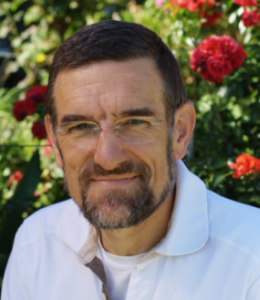Fons van de Vijver is Professor of Cross-Cultural Psychology at Tilburg University, Netherlands and has extraordinary chairs at North-West University (Potchefstroom, South Africa) and the University of Queensland (Brisbane, Australia). His over 350 publications span methodological aspects of cross-cultural comparisons (bias and equivalence), acculturation, multiculturalism, personality and cognitive processes. He is also the past editor-in-chief of JCCP as well as President-Elect of the European Association of Psychological Assessment.
1. I got into cross-cultural psychology because...
I was interested in cultural differences and met a very good tutor (Ype Poortinga). Not sure where my interest in cultural differences came from - I grew up in a small village on the border between the Netherlands and Belgium, which was not a border in terms of language and culture. The strange combination of being both very similar to and very different from the people at the other side of the border was intriguing. I can still look endlessly at what people do when I travel (my wife always reminds me that I should not do it).
2. I wish someone had told me at the beginning of my career...
That after my PhD I would not be very frequent in the field to collect data, which I find the most rewarding bit of cross-cultural psychology.
3. I most admire academically Einstein because...
He condensed the whole universe in a single formula (the ultimate example that less is more). Closer to home, I would probably mention Don Campbell, who came with many new solutions to old problems and was able to lift the level of professionalism of psychology considerably. I admire people who can develop approaches or models that shed a new light on reality, who develop tools that are used by many people.
4. The best research project I have worked on during my career...
My best project is always my last project, as the questions I am interested in change over time and the theories and methods continually improve. When I started my career I was more focusing on academic matters and I was interested in the progress of science. Later in my career I have come to appreciate that what happens in science is strongly influenced by what happens in society. It is a bit like the change from (clean) experiments to (dirty) field research. I believe nowadays that most of the things that matter in cross-cultural psychology are not open to experimentation. What often strikes me is that the new generation is more relaxed about this than the old generation, who were still educated that experimentation is the only road to knowledge.
5. The worst research project I have worked on during my career...
There is not a single project I was involved in that I found a waste of time.
6. The most amazing or memorable experience when I was doing research…
In rural Zambia and Zimbabwe – collecting data among people who are culturally very different from you is very inspiring. You come to appreciate what culture is when you work in the field. I think that by growing older, I also find it easier to see the cross-cultural aspects in everyday life. It always strikes me how easy it is to find examples of what I teach in courses on cross-cultural psychology from everyday life. They pop up while you are talking.
7. The one story I always wanted to tell but never had a chance…
Not sure that there is one.
8. A research project I wish I had done... And why did I not do it…
Make a very short acculturation questionnaire applicable in many contexts; never found the money.
9. If I wasn't doing this, I would be...
Working in some other science. If I would start again, I would probably study the interface of culture and the brain, which I find a remarkably underdeveloped area. Social neuroscience is still in its infancy and we still do not have a clue as to how we should model the interaction of environment and the brain. Well… I love nature and there are also still these wonderful places I would like to visit if time and money would permit. Although I have travelled quite a bit, the list of interesting places I have never visited is still long; Patagonia is a good example.
10. The biggest challenge for cross-cultural psychology in the next 10 years is...
Not to lose oversight and to avoid becoming scattered or defragmented. In addition, we should work more on smart models that link context and psychological output. Our (typically) typological models of culture need to be modernized. Mainstream psychology will lose interest if we cannot develop new models that generate new insights in environment—organism relationships.
11. My advice for young researchers at the start of their career is...
Go for it! Even if the times and conditions are not conducive, believe in what you do and expect to reap the rewards later. When I completed my master degree, it was difficult to get started as a researcher. I am very happy that I resisted the temptation to start another career and to remain focused on academia.
12. I would define cross-cultural psychology as...
The study of similarities and differences in psychological functioning across cultures (and the influence of this functioning on culture) so as to better understand the interaction between humans and their environment in a broad sense.
Full website: http://www.fonsvandevijver.org/
